Sriram Raghavan talks about the thrill of making films
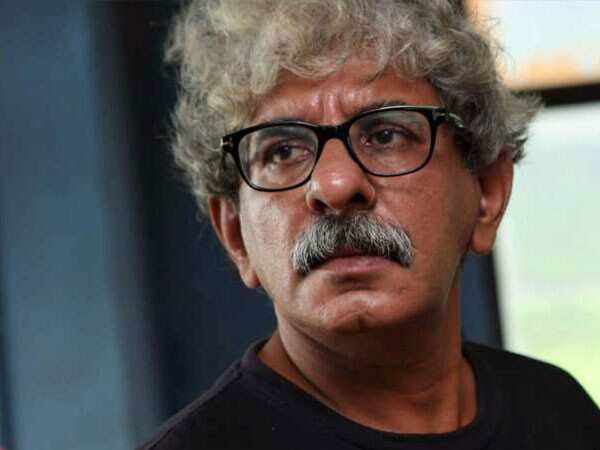
He has single-handedly retooled the Bollywood thriller genre and kept it alive. And has got us hooked onto it like smack. And he never fails to surprise given that the twist in his tales never go out of fashion. With Sriram Raghavan, you’re always on the edge of your seat. His latest AndhaDhun made all the right noises at the box-office, having accumulated over 70 crores. Let’s not forget the critical acclaim. Rarely does a film score on both counts. It’s impossible to deny the energy that keeps the plot ticking.
A Friday afternoon languidness is in the air at his office. His assistants occupy the front room, happy faces probably rejoicing the success of their latest film, or planning their next. Inside Sriram Raghavan is all smiles when you discuss AndhaDhun. The industry reaction has been overwhelming. But there’s one question everyone wants to know the answer to. Me too. So I ask:
First, I want to know how does Ayushmann Khurrana’s character in AndhaDhun see
at the end?
Well, he might be blind yet. What makes you think he can see?
Because he kicks the can at the end. Also, he has a rabbit on his walking stick. If he was blind, he wouldn’t have known that the rabbit saved him.
There were a lot of things that we didn’t show. We were four of us (Arijit Biswas, Yogesh Chandekar, Hemanth Rao and Raghavan) writing the script. My editor Pooja (Ladha Surti), who was also co-writing, felt that this guy should remain blind. But some of us felt that it would be too bleak. What has he done to deserve that kind of an end? But at the same time, if he gets his eyes back easily… like suppose Simi (Tabu’s character in AndhaDhun) has green eyes and then suddenly he takes off his dark glasses and you see he has green eyes that would be a cheesy kind of an end. I thought what if we leave it at a point where the audience doesn’t know whether he’s blind or not. And at the same time give a hint that he whacked a can. But that could have been an accident. And maybe someone told him that a farmer was trying to kill a rabbit and all that happened when he got onto the bus. That’s one possibility.
What’s the other?
The other one is that none of this ever happened, he just made it up. So, what probably happened is that the doctor told him that she’s valuable because her blood group matches Ayushmann’s. So, he tells Ayushman I’ll take the liver and make money and give you the eyes. After two years, he sees his old girlfriend and he cannot confess to her what he’s done. So, he tells her a lie in which Tabu becomes the villain and he becomes the victim. What happens in the end reflects the viewer more than what we’re trying to say. If a guy says something like, “If I take her eyes, I’ll never be able to play music again.” That sounds like a sensitive soul. But imagine if he has made up this line. That’s even more dangerous than the regular bad guy.
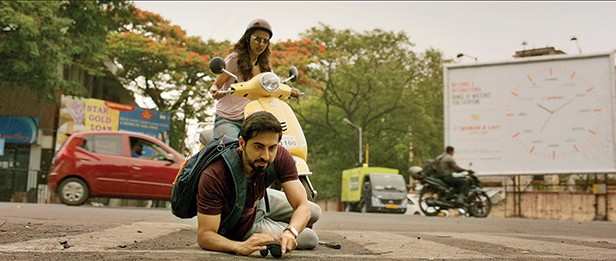
What interests you about the thriller genre?
It’s because of the books I read as a kid. I believed that the Alfred Hitchcock stories, were written by him. But he had just lent his name to a franchise. Later, I’d prefer to watch Hindi movies, which had thrill.
Why didn’t this genre take off in India before?
We’re now exploring taboo topics, pushing the envelope in terms of stories. Earlier even a thriller would have music, comedy, the works. It would have a happy ending. You’d never expect an ending that makes you think. But, occasionally, it’s nice to have a thriller that makes you think after it’s over.
Some say the film was all over the place in the second half…
I get what they’re saying. As a viewer, you believe that the kid in the film has shot a video of Ayushmann so that’s going to be useful. Suddenly, all those things are forgotten and Ayushmann’s character has got himself into another story. So, it dislocates the viewer’s thinking process. We had people saying that the second half was going crazy and how can you introduce characters so late. But that seemed to be the best option.
AndhaDhun has brought both critical acclaim and box-office success. Are you flying high?
Even if you’re flying that doesn’t mean anything. Because with the next film, there’s a new mountain to climb, a new adventure to tackle. I may a get a little more money from the producer to make my film. That’s all. But I’ll use that money only if my story needs it. You just enjoy all this as a great sunrise you witnessed.
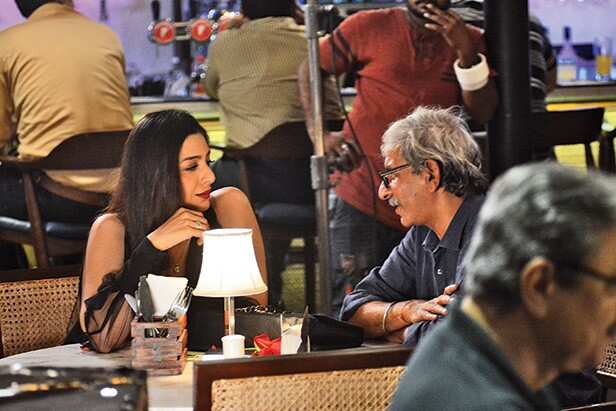
Are you like ‘my next film has to be a hit now’?
Not hit, the next film has to be liked. Everyone was unsure about this film. Whether it’ll work or not. It was low key in every aspect. Suddenly, it took off. It’ll make things easier for me but finding the right story is never easy. (Laughs) Maybe, now I’ll get more screens on the first day.
You approached Ranbir Kapoor, Ranveer Singh and Harshvardhan Kapoor. What happened?
Earlier this film was supposed to be done with Tips. I told them I had a terrific role for an actor. But I didn’t have a detailed script. We met a few actors – some newcomers too. I wouldn’t take names because it doesn’t make sense now. Each one got rattled in the second half. I can’t blame them because we cracked the script along the way. Like that line, ‘What is life? Depends on the liver’ came one day when we were editing. In Badlapur too, we had the quote, ‘The axe forgets but the tree remembers.’ The ‘liver’ quote had a pun. It suited the film.
You thought of casting Varun Dhawan too. Right?
I had narrated this story to Varun before starting Badlapur. I told him I was working on a funny movie. I always thought of AndhaDhun as a humorous film. But, when he heard the story of Badlapur, he loved it so much that we didn’t pursue this. When Badlapur got over, he was doing bigger and bigger films. I let him go because I make certain kind of movies. I didn’t want to wait for a year or two. I began looking for actors. I met Tabu and finalised her. She kept asking me, “Who’ll play the guy?”
Then Ayushmann Khurrana called you for the role...
Yes one day he just called. The next day I met him. The following evening everything was locked.
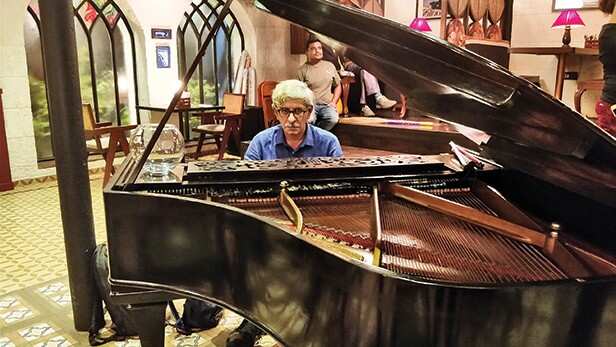
Ayushmann said that though you’ll deny it, he did give a screen test. Isn’t it great that an actor is ready to give a screen test in today’s age?
(Smiles) I just told him we will do a few scenes. I wanted to see his body language. You have to tweak the script to suit the actor. In one scene, he’s playing blind but he can see and in the other, he’s actually gone blind. It was just to see what the difference would be. Actually, when I met him, within the first couple of hours, I was convinced about him. I kicked myself wondering why I hadn’t thought of him six-eight months back.
A favourite scene in the film?
The one where he’s playing music and the whole skit is happening around him. That’s the nucleus of the film. Amit Trivedi had already made the music for the scene. We wanted waltz music. What would you play if it was a wedding anniversary celebration? It’s a four-minute piece. I used to rehearse along with my assistants just to see if we had enough activity for four minutes. We didn’t rehearse with the actors. We just explained the scene and asked them to manage. That helped because otherwise it might have looked rehearsed.
Does a director need to have nerves of steel?
You will have difficult days and you’ll wish that things were different. But, as long as the actor’s good, the script has got something and you’re patient, it’s not so bad. After it’s all over, you can remember all this and laugh over it. In fact, I’m sacred that if everything went perfect, it might turn out to be a lousy movie.
How did the transition from journalism to movies happen?
I used to watch a lot of movies. I wanted to become a journalist. I thought of coming to Bombay and joining the evening course in journalism in St Xaviers. Once in the train, I saw an ad for trainee journalists for a film magazine. I joined the publication. But due to my stammer, I was a bad reporter. I was eventually chucked out.
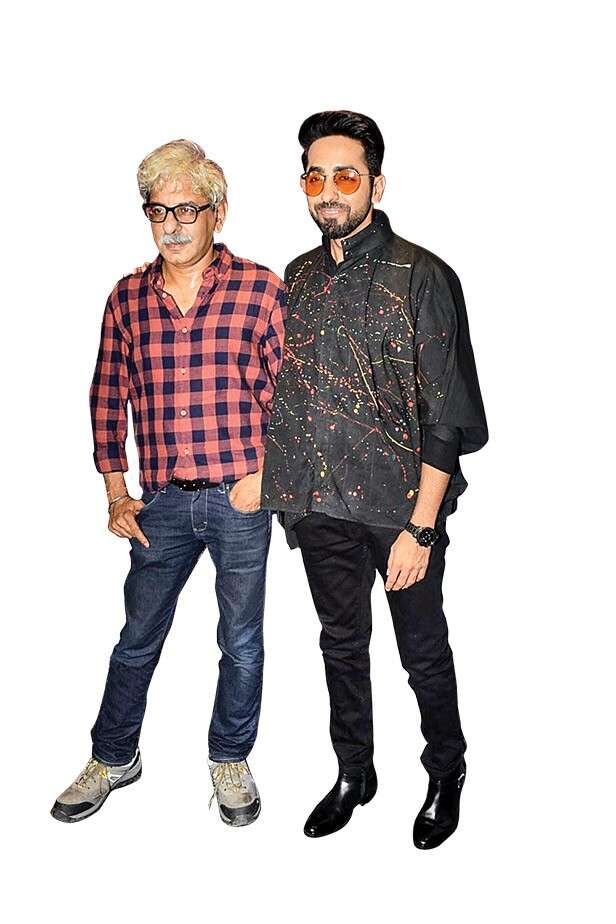
Then?
A film trade journal wanted a proof reader. I joined them. That’s when I met Mukul Anand (late director). He asked me to join him as an assistant. He was working on the Hitchcock remake Dial M For Murder (1954), titled as Aitbaar (1985). During Aitbaar, I applied at the FTII in Pune. We were shooting a song for Aitbaar in Khandala. The shoot got delayed. So, I went off to Pune and gave the interview at the institute and enrolled myself.
What have been the turning points in your career?
One is the shoot of Aitbaar getting delayed. The second would be meeting Ram Gopal Varma. I had done a docu-drama on Raman Raghav on a VHS. Anurag Kashyap, who was working with RGV, showed it to him. I began interacting with him. RGV wanted me to write a script for him. Eventually, he produced my debut - Ek Hasina Thi (2004).
What’s next?
A war film. It’s not a thriller but it’ll be thrilling. It’s not a ‘Laash kahan chupao?’ kind of thing. It is about a character from the 1971 war, Arun Kethrapal. He was martyred and went on to receive the Param Veer Chakra. That story is mixed with another story. Both the stories run parallel.
Will you ever make a romantic film?
I’d love to but it has to be a story that kicks in some manner. I do believe in love and romance.
I loved Rangeela. But, I don’t know if I’d be able to do that. You need to find a story, which deeply moves you. There’s no story that I read and I felt like I should make this. But, when I watch films like Roman Holiday…they have tremendous appeal. So, maybe some day...
A recent happy memory?
When I was in Goa for IFFI, every few minutes, people would walk upto me for a selfie. That felt nice.


Post a Comment